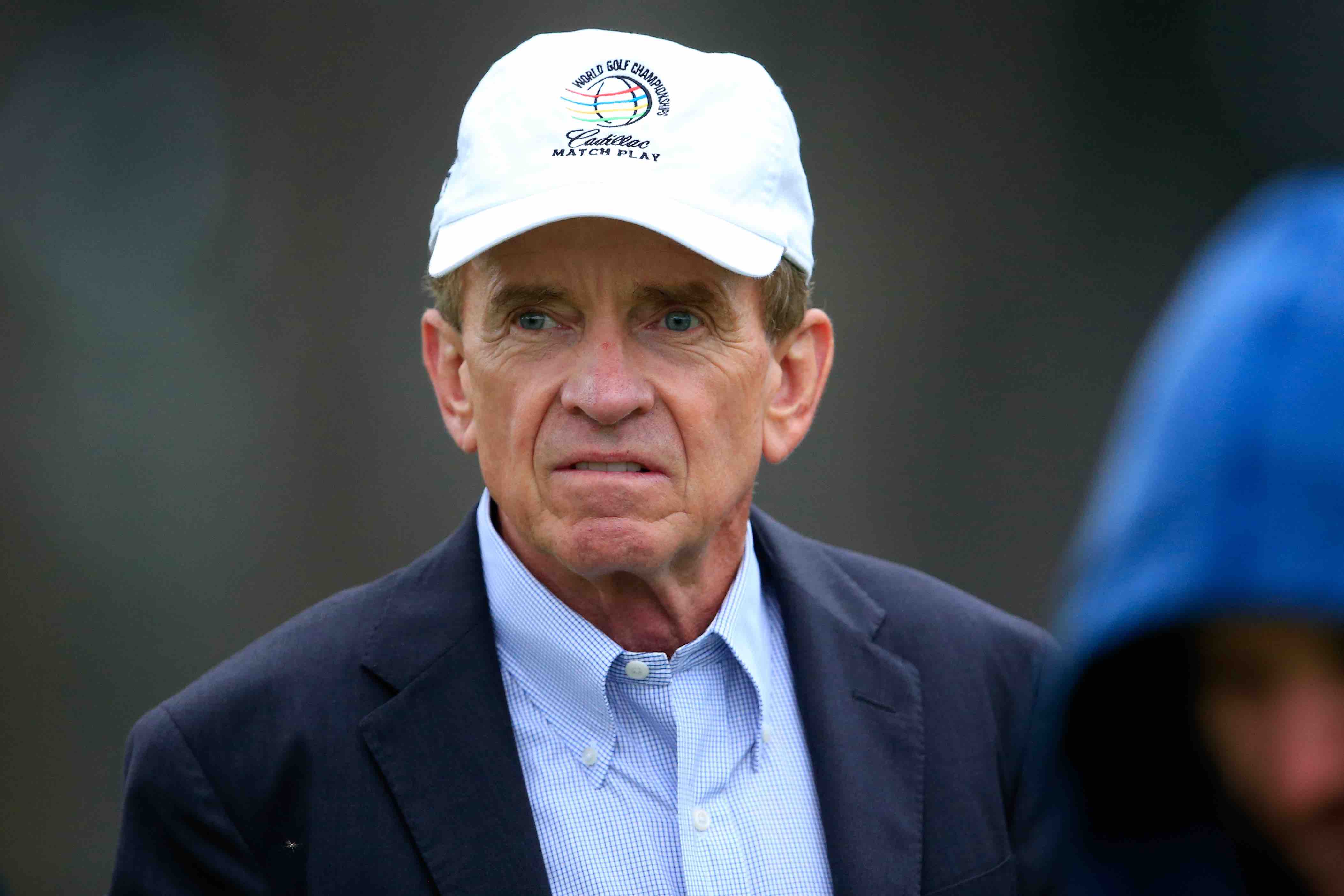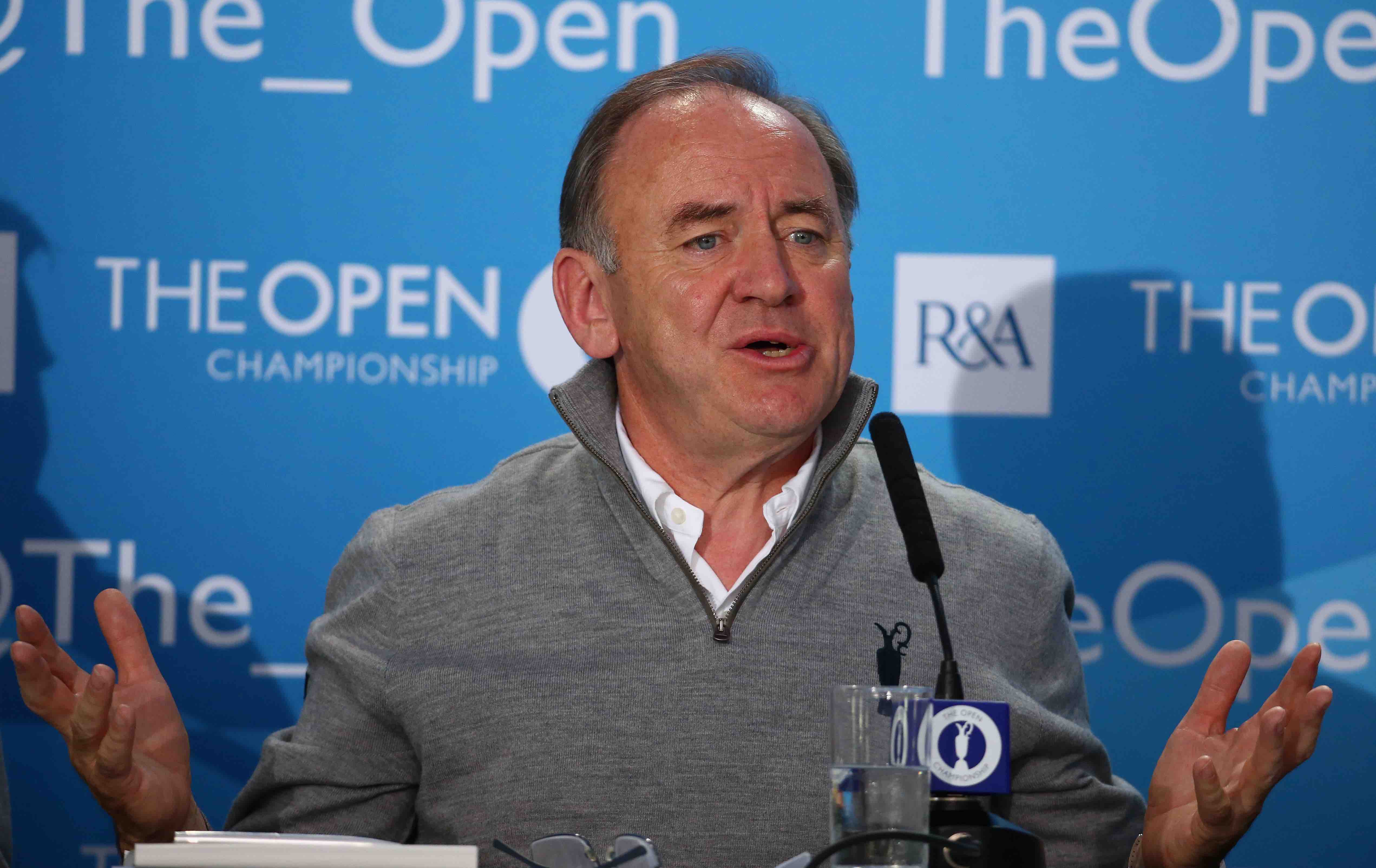Ever wondered why golf isn't compliant with World Anti-Doping Agency Standards? What have the governing bodies and tours got to be afraid of?
As Thomas Bach, 2016 Olympic President, attacked the PGA for a lack of transparency in anti doping policy, and insisted golfers competing in the Olympics will have to be WADA compliant, golf did its usual 'uncomfortable-foot-shuffling-staring-at-the-floor-and-hoping-the-nasty-interfering-people-would-go-away-and-kindly-mind-their-own-business-this-is-golf!' act.

Above: Thomas Bach, IOC President
The PGA Tour has its own anti-doping programme but many argue it is not as stringent as the world code. Thirteen weeks before the 2016 Games in Rio, participating Olympic players will automatically be required to comply with the world code because the tournament in Brazil – the first Olympic golf competition since 1904 – will operate under the International Golf Federation’s (IGF) anti-doping policy, which is WADA compliant.
It means players will need to provide their whereabouts around the clock and will be blood-tested, while any positive samples would be made public. The PGA Tour’s current policy is to not disclose details of any known banned substances and the decision-making following drug infringements, unless the discrepancy in question is regarded as performance-enhancing. Bans for recreational drug use are not made public and only three Tour players have been sanctioned for use of performance-enhancing drugs since 2008.
What Bach said:
“They will have the same conditions like all the athletes. There will be random testing. There will be target testing. With regard to the anti-doping programme, it is clear that the athletes will have to accept the Olympic standards during the next year prior to the Games, and of course during the Games. That means, for instance, that during the Games the first five [placed players] will be tested on top of the random testing and the targeted testing during the Olympic period. They all have to accept it.
“Prior to the Games and from now on, I can only encourage the PGA Tour to follow the Wada code, and finally to accept the Wada code and to be compliant with this so that you have a harmonised anti-doping regime for all the golf players and that you have an equal level of playing field.
What Finchem said:
However, Tim Finchem, the commissioner of the PGA Tour, has defended the organisation’s programme, saying: “The doping programme we have is the best in our sport globally.”

Above: Tim Finchem. Ladies' choice..
An IGF statement read: “Olympic golf will operate under the International Golf Federation’s anti-doping policy, which is Wada compliant. This will come into effect 13 weeks out from the Olympic Games in Rio. From May sixth, 2016 through to the conclusion of the Olympic Games there will be a registered testing pool, created and managed by the IGF, and male and female golfing athletes will be subject to both urine and blood tests for substances on the Wada prohibited list.”
What Dawson Said:
Peter Dawson, the outgoing chief executive of the R&A, said earlier in the week that golf could not be complacent regarding anti-doping but refused to reveal how many tests would be taking place at this year’s Open.
“I would certainly urge that golf moves towards being Wada compliant at all times and right across the world, and I think the game of golf is working towards that,” said Dawson. “That said, it’s still my belief that we don’t have a major drug problem of any kind in the game of golf, but we certainly can’t afford to be complacent.”

Above: Peter Dawson Chief of the R&A: "You talking to me?"
What Gary Player said:
While the R&A and the PGA might pussy foot around the subject, a legend of the game is not so shy. Gary Player recently claimed that he personally knows that golfers are using drugs. Cocaine might go on behind closed doors and so what? The problem is, apparently, steroid abuse.
"Whether it's HGH, whether it's Creatine or whether it's steroids, I know for a fact that some golfers are doing it," Player said.
Asked how he knew for certain, he said one golfer told him.
"I took an oath prior to him telling me — I won't tell you where — but he told me what he did, and I could see this massive change in him," Player said. "And somebody else told me something, that I also promised I wouldn't tell, that verified others had done it."
The cryptic accusation put the Royal & Ancient Golf Club on the defensive over why it does not have drug testing at the British Open, with chief executive Peter Dawson being asked whether he was concerned that its winner could be using steroids.
"I don't know if Gary Player is right about golfers being on drugs, frankly, so I really can't comment," Dawson said. "One thing I do know is that we're not drug testing here at the Open championship this week, so just how that would be identified, I'm not sure."

Above: Dustin Johnson

Above: Gary Player: He might look happy here, but...
What GolfPunk Says:
Pretty simpering stuff from the R&A and PGA as usual there... But let's look at the reality. Not so long ago a top-10 golfer failed his third drug test in five years, including two for cocaine.
If Dustin Johnson had won the Open, what were we supposed to do? Applaud a great athlete for overcoming unfortunate circumstances, or turn our backs on the sport for having buried its head in the sand in the face of the kind of issues that get other sport's stars lengthy, if not lifetime bans? We certainly got no steer from the R&A or the PGA as to what 'golf' thought of such matters.
How can we take either Peter Dawson or Tim Finchem seriously when they lock themselves in back rooms, slap each other on the back and brush anything unpleasant under the carpet – after all, there's money to be made from the top golf stars, let the baby have its bottle, no one will ever know.
Compared to other sports' governing bodies, this comes across as pretty spineless stuff. The R&A and the PGA clearly don't need the aggravation of acknowledging the fact that their charges are as normal and susceptible to 'mistakes' as any other sport's stars (love that word – like 'I mistakenly turned left when I should have turned right at a cross-roads' is the same as 'I mistakenly injected myself with drugs instead of not injecting myself with drugs').
And all this at a time when other sports' governing bodies – cycling, athletics etc – are perpetually cleaning up the road kill of drug-related incidents they are forced to make public in their sports. Golf has to man up.
Maybe golf doesn't have a big problem. But that's the problem isn't it? The likes of Finchem and Dawson can interpret what 'big' really means any way they like. You can't make the level of intent/impact of the use of drugs in sport subjective. Either you took the drugs or you didn't. It can't be one rule for golf and one for everyone else.
Personally, I couldn't give a tinker's cuss if Dusty was hoovering his way from Columbia to Bolivia, the crumbling of his septum is his own concern, and liberal use of cocaine is hardly going to help his game. What he does in the Hooters toilets is none of my business and hardly unusual for a wealthy dude in his 20s, surrounded by fixers, well-wishers, hangers-on and party-hard types. If anything, it made a lot of people think golfers weren't quite as banal as they thought. Party on, Dusters!!
The problem is that, if it was any other sport, football for example, he would have been pilloried and banned. Golf has scrupulously cultivated the same code of silence with which it once helped to cover up Tiger's cocktail waitress plundering.
When Johnson failed to defend his title at the World Golf Championship in Shanghai last November, following all the hullabaloo about his 'off-course issues', you couldn't get a word out of anyone from the PGA about where he was and why he wasn't where he was supposed to be. .
Only three players have been suspended under the anti-doping policy. The most recent was Scott Stallings, who told the tour he was unaware that an over-the-counter drug he was taking was on the banned substance list. Stalling received a three-month suspension. The other two (Bhavik Patel and Doug Barron) were out for one year. The tour did not explain the difference.
Clear as mud. Just the way they like it.





